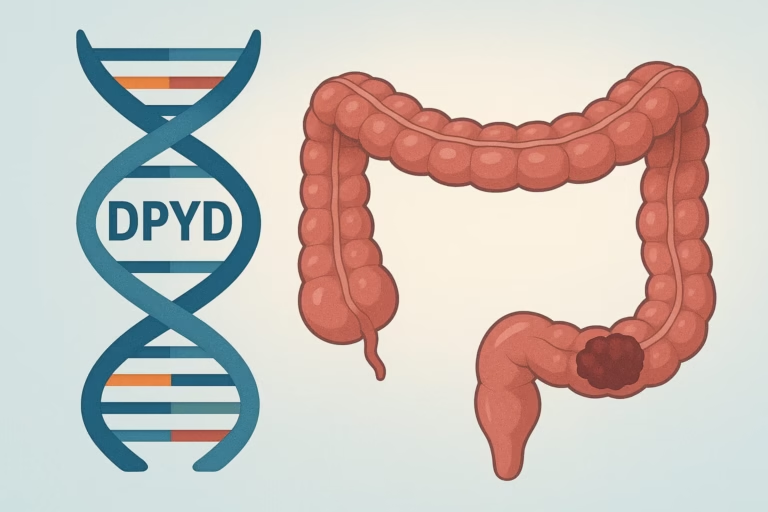Over 20,000 publications in the US National Library of Medicine National Institutes of Health for pharmacogenomics (PGx)1 underscore the pivotal role of pharmacogenomics education. It is essential for integrating this field into clinical practice. This highlights the critical need for cross-disciplinary programs in pharmacogenomics education.
Pharmacogenomics, an interdisciplinary field of health research, is gaining prominence. Education is key to its successful integration into clinical settings. Therefore, cross-disciplinary programs in pharmacogenomics are vital for developing comprehensive pharmacogenomics education.

Pharmacy education varies widely in incorporating pharmacogenomics. Some institutions fully integrate it into their curricula, while others offer it as electives or through advanced pharmacy practice experiences (APPEs)2. This variance underscores the necessity for standardized cross-disciplinary programs in pharmacogenomics education. Such programs are crucial for ensuring pharmacists possess the knowledge and skills for personalized medicine.
A 30% decrease in medication adverse events over 12 weeks with PGx testing3 showcases pharmacogenomics’ potential to enhance patient outcomes. Cross-disciplinary programs in pharmacogenomics education are essential. They equip healthcare professionals with the knowledge and skills to effectively apply pharmacogenomics in clinical settings.
Understanding the Evolution of Pharmacogenomics Education
Pharmacogenomics has transformed medicine, allowing for personalized drug therapies based on genetic profiles. This approach boosts treatment efficacy and safety4. The Bureau of Labor Statistics (BLS) forecasts a 16% employment rise for genetic therapists from 2023 to 20334. This surge in demand underscores the necessity for interdisciplinary pharmacogenomics programs. These programs merge pharmacology and genomics, offering in-depth training in pharmacogenomics.
The advent of pharmacogenomics is set to introduce new leadership positions and career paths in pharmacy, drug development, research, and genetic testing4. A NorthShore University HealthSystem study revealed that about 20% of primary care prescriptions involve high-risk variants affecting drug response5. This underscores the critical role of pharmacogenomics in streamlining medication prescriptions and reducing adverse drug reactions.
A survey of 248 medical schools showed that 35% offer only one or two hours of pharmacogenomics education, with another 50% providing two to four hours5. This educational shortfall hinders the widespread adoption of pharmacogenomics in healthcare6. Thus, it is imperative to establish and implement thorough pharmacogenomics training programs. These programs must bridge knowledge gaps and equip healthcare professionals with the skills to integrate pharmacogenomics into clinical practice.
For further insights into pharmacogenomics education’s evolution, visit this link. It offers updates and advancements in pharmacogenomics.
Core Components of Cross-Disciplinary Programs in Pharmacogenomics
The essence of cross-disciplinary programs in pharmacogenomics lies in cross-disciplinary pharmacogenomics courses and a meticulously crafted pharmacogenomics curriculum. These elements are crucial for delivering a thorough education in pharmacogenomics. They empower students to grasp the intricate connections between genes, drugs, and diseases7. A survey showed that 67% of professionals in the field hold either a master’s or PhD, while 27% have a bachelor’s or honors degree7.
The pharmacogenomics curriculum must encompass a variety of subjects, including molecular biology, genetics, and clinical pharmacy. This foundation is vital for students. Moreover, cross-disciplinary pharmacogenomics courses should encourage collaboration among students from diverse backgrounds. This approach enhances their comprehension of pharmacogenomics’ complexities7. The creation of such programs necessitates meticulous planning, considering both student needs and the field’s demands. Notably, 81% of respondents have over a decade of experience in the industry7.
Practical training and experience are fundamental components of these programs. This includes clinical rotations and research projects, offering students direct experience in the field. Such training is facilitated through partnerships with industry and clinical institutions. It allows students to apply their knowledge in real-world scenarios8. The significance of this training is underscored by the fact that 79% of respondents consider knowledge of patient diagnostic and treatment pathways crucial for their roles7.
Integration of Multiple Scientific Disciplines
Pharmacogenomics education is undergoing a transformation, embracing a variety of scientific fields. These include molecular biology and genetics, clinical pharmacy and therapeutics, and bioinformatics and data science. This integration is vital for the creation of interdisciplinary pharmacogenomics programs. Such programs are pivotal in achieving better patient outcomes and tailoring treatments to individual needs. By merging these disciplines, students gain insight into the intricate connections between genes, diseases, and drug reactions. This knowledge empowers them to deliver more personalized care.
The Human Genome Project, a collaborative effort involving engineers and researchers from 20 centers across six countries9, has significantly expanded our comprehension of the human genome’s role in disease. Moreover, PGx testing has been proven to reduce adverse medication reactions by about 30%3. This underscores the critical role of pharmacogenomics in clinical practice. Below is a table showcasing the advantages of interdisciplinary pharmacogenomics programs:
| Discipline | Benefits |
|---|---|
| Molecular Biology and Genetics | Understanding of genetic variations and their impact on disease |
| Clinical Pharmacy and Therapeutics | Personalized treatment plans and improved patient outcomes |
| Bioinformatics and Data Science | Analysis of large datasets and identification of patterns and trends |
The fusion of these disciplines within pharmacogenomics education is crucial for the advancement of interdisciplinary pharmacogenomics programs. These programs are instrumental in enhancing patient care and tailoring treatments. By integrating multiple scientific disciplines, pharmacogenomics education equips students with a deep understanding of the complex interactions between genes, diseases, and drug responses. This knowledge is essential for delivering personalized care.
Essential Skills Development in Modern Pharmacogenomics
Pharmacogenomics training is paramount for honing essential skills in today’s pharmacogenomics landscape. It empowers healthcare professionals to dissect and interpret genetic data, engage in effective patient communication, and integrate pharmacogenomics principles into clinical settings6. Moreover, cross-disciplinary pharmacogenomics courses are indispensable. They offer a holistic view of the field, encompassing molecular biology, genetics, and bioinformatics10.
Many pharmacists lament the absence of formal pharmacogenomics education, underscoring the imperative for dedicated training programs6. The American Pharmacogenomics Association stands as a beacon, offering resources for pharmacists and physicians to delve into careers in pharmacogenomics. It provides insights into educational pathways and training opportunities.
The significance of pharmacogenomics education is underscored by the revelation that over a third of participants deemed their pharmacogenomics knowledge as subpar6. To rectify this, pharmacy curricula must incorporate cross-disciplinary pharmacogenomics courses. This will equip students with the requisite skills and knowledge to thrive in this evolving field.
Students should focus on acquiring several critical skills in pharmacogenomics education:
- The ability to analyze and interpret genetic data
- Effective communication skills for interactions with healthcare professionals and patients
- Comprehensive knowledge of pharmacogenomics principles and their practical application in clinical settings
By mastering these skills, healthcare professionals can deliver personalized medicine. This not only enhances patient outcomes but also elevates the overall quality of care10.
Designing Effective Cross-Disciplinary Curricula
Creating a pharmacogenomics curriculum necessitates a focus on student needs and the healthcare sector’s demands. A pharmacogenomics degree program must encompass a broad curriculum. This should delve into the subject’s principles, applications, and implications. The American Pharmacogenomics Association emphasizes the importance of pharmacogenomics education for personalized medicine’s advancement. Therefore, educators must craft curricula that merge molecular biology, genetics, and bioinformatics.
Students should gain a profound understanding of pharmacogenomics and its practical applications. This can be achieved through hands-on training, case studies, and research projects. Moreover, the curriculum must evolve with field advancements, ensuring students are armed with the latest knowledge and skills. Developing such a curriculum demands meticulous planning, considering learning objectives, assessment methods, and course structure11.
Key considerations in curriculum design include:
* Course structure and planning
* Learning objectives and outcomes
* Assessment methods
These elements are vital for creating a comprehensive pharmacogenomics degree program. They ensure the curriculum meets student and healthcare industry needs. By integrating these aspects, educators can establish a curriculum that equips students with a solid pharmacogenomics foundation, readying them for careers in the field8.
Bridging Academic and Clinical Practice
Pharmacogenomics education is vital for healthcare professionals aiming to deliver tailored care. Cross-disciplinary programs in pharmacogenomics serve as a bridge between academic theory and practical application. A survey showed that 85% of respondents believed pharmacists should grasp pharmacogenomics12. This underscores the necessity of integrating pharmacogenomics into pharmacy curricula.
A comprehensive review of 52 studies across 26 countries indicated that pharmacists and students generally welcome pharmacogenomics. However, they often lack the knowledge and confidence needed13. This underscores the critical role of cross-disciplinary programs that merge academic and clinical training. Such programs equip healthcare professionals with the requisite skills, thereby enhancing patient care and professional growth.
The advantages of merging academic and clinical practice in pharmacogenomics education are manifold:
- Enhanced patient outcomes through personalized care
- Professional development through cross-disciplinary training
- Increased confidence in applying pharmacogenomics test results to drug therapy selection, dosing, or monitoring
By establishing cross-disciplinary programs in pharmacogenomics, we can fill the existing gaps in education and training. This will ultimately lead to superior patient care and better health outcomes1213.
Technology Integration in Pharmacogenomics Education
Pharmacogenomics education is undergoing a transformation, embracing technology to enrich the learning experience. This shift is critical for delivering superior pharmacogenomics training and cross-disciplinary pharmacogenomics courses. Digital platforms, simulation tools, and data analysis software are now integral to pharmacogenomics education2.
Digital learning platforms offer flexibility and accessibility, allowing students to learn at their own speed. Simulation tools and virtual labs provide practical experience, enabling students to hone their skills in pharmacogenomics5. Training in data analysis software is also crucial, as it equips students to interpret and apply genetic data in clinical settings3.
Several institutions have successfully integrated technology into their pharmacogenomics programs, leading to better student outcomes and higher engagement. For instance, digital learning platforms have been shown to boost student participation and retention in pharmacogenomics training programs2. The inclusion of simulation tools and data analysis software training has also been found to deepen students’ understanding of complex pharmacogenomics concepts5.
In summary, technology integration is vital for delivering top-notch pharmacogenomics education. By incorporating digital learning platforms, simulation tools, and data analysis software training, educators can craft engaging and effective cross-disciplinary pharmacogenomics courses. These courses are designed to equip students for success in the field3.
Professional Development and Continuing Education
Pharmacogenomics education is vital for healthcare professionals to deliver the best patient care. Approximately half of practicing physicians were trained before the Human Genome Project’s completion in 2003. This lack of genomics in their education underscores the necessity for interdisciplinary pharmacogenomics programs. These programs are essential for ongoing education and training of healthcare professionals.
Interdisciplinary pharmacogenomics programs can significantly enhance patient outcomes and professional development. A nationwide survey by the Personalized Medicine Coalition (PMC) showed low adoption of pharmacogenomic testing among physicians. This indicates a significant gap in education and awareness14. Initiatives in pharmacogenomics empower healthcare professionals to identify patients at risk for adverse reactions or poor medication responses based on genetic profiles.
The integration of pharmacogenomics into clinical practice is expected to lead to significant cost savings. It avoids ineffective treatments and reduces adverse drug reactions14. Pharmacogenomic education allows healthcare providers to make informed medication decisions. This tailoring of treatments to a patient’s unique genetic profile optimizes treatment outcomes. In a pilot program, 284 pharmacists participated, with 232 completing the Introduction module (82% completion) and 217 completing the Hypersensitivity module (76% completion)15.

Pharmacogenomics education enhances cost-effectiveness by optimizing resource allocation and minimizing unnecessary medication trials14. Understanding genetic variations in drug response can significantly increase the likelihood of achieving optimal therapeutic outcomes. By investing in pharmacogenomics education and interdisciplinary programs, we can improve patient care and outcomes. This also reduces healthcare costs.
Challenges in Implementing Cross-Disciplinary Programs
Introducing cross-disciplinary programs in pharmacogenomics education encounters several hurdles. These include resource allocation, faculty expertise, and standardization concerns. A study found 985 articles in the scientific database, with 795 remaining after removing duplicates16. This complexity underscores the difficulty in gathering relevant information for such programs.
Resource allocation is a significant challenge. Institutions often face difficulties in allocating enough resources for these programs. A systematic review on pharmacogenomic testing implementation found 25 eligible reports, highlighting the need for meticulous planning and resource allocation17.
Faculty expertise is another hurdle. Instructors must acquire new skills to teach these cross-disciplinary courses. The American Pharmacogenomics Association offers resources and support for educators to enhance their pharmacogenomics knowledge. These resources are available on their website pharmacogenomics education. Standardization is also a concern, as institutions must develop uniform curricula and assessment methods for these programs.
| Challenge | Description |
|---|---|
| Resource Allocation | Allocating sufficient resources to support cross-disciplinary programs |
| Faculty Expertise | Developing instructor expertise in cross-disciplinary teaching |
| Standardization | Developing standardized curricula and assessment methods |
Overcoming these challenges is essential for the successful implementation of cross-disciplinary programs in pharmacogenomics education. This will ultimately enhance the quality of pharmacogenomics education and improve patient outcomes16.
Industry Partnerships and Clinical Rotations
Pharmacogenomics training and cross-disciplinary pharmacogenomics courses are vital for the progression of personalized medicine. The American Pharmacogenomics Association is introducing a job board to link pharmacogenomics professionals with job openings in various fields. These include academic research, clinical applications, and industry roles, accessible via pharmacogenomics job board. This move aims to boost community involvement and aid in career growth within the field, showcasing the association’s dedication to pharmacogenomics advancement18.
Creating strategic alliances between academia and industry is key to pharmacogenomics education’s success. Clinical rotations and internships offer students practical training, equipping them for pharmacogenomics careers. The inclusion of pharmacogenomics training and cross-disciplinary pharmacogenomics courses in academic curricula allows students to grasp the field’s breadth. This includes its role in precision medicine and the introduction of new therapies19.
Industry partnerships and clinical rotations in pharmacogenomics education offer several benefits. These include enhanced student learning, better job prospects, and increased industry involvement. By offering real-world experience, educational institutions can better equip students for the field’s challenges. This contributes to the growth of personalized medicine. Key aspects of these partnerships and rotations include:
- Strategic collaborations between academia and industry
- Real-world experience integration through clinical rotations and internships
- Incorporation of pharmacogenomics training and cross-disciplinary pharmacogenomics courses into academic programs
Through fostering industry partnerships and offering clinical rotations, pharmacogenomics education ensures students are ready to contribute to personalized medicine’s advancement. This leads to better patient outcomes and transforms the healthcare landscape18.
Quality Assurance and Program Accreditation
Quality assurance and program accreditation are pivotal in pharmacogenomics education, guaranteeing students receive superior training. They are essential for preparing students for their future careers. Interdisciplinary pharmacogenomics programs must adhere to rigorous standards. Accreditation is vital for upholding the integrity of these programs. The Accreditation Standards mandate that 100% of students must complete at least 1,600 hours of Introductory Pharmacy Practice Experiences (IPPE) to meet graduation requirements20.
The significance of quality assurance and program accreditation in pharmacogenomics education is immense. It not only elevates program quality but also enhances student outcomes and boosts public trust. For example, the Doctor of Pharmacy program includes a 12-week Advanced Pharmacy Practice Experience (APPE) in the final year. This ensures students receive practical training in various pharmacy settings20. Moreover, the program boasts a graduation rate exceeding 95% for enrolled students, showcasing strong student retention and success20.
Furthermore, pharmacogenomics education programs must emphasize interprofessional education (IPE) as a critical curriculum component. This approach meets accreditation requirements and prepares students to collaborate in interdisciplinary teams. Alumni surveys reveal that 85% of graduates feel adequately prepared for their pharmacy careers, highlighting the program’s educational competencies20. For more insights on the importance of quality assurance and program accreditation in pharmacogenomics education, visit this link to explore the University of Florida Health Personalized Medicine Program.
In conclusion, quality assurance and program accreditation are crucial for ensuring the quality and efficacy of pharmacogenomics education programs. By focusing on these elements, interdisciplinary pharmacogenomics programs can equip students with the necessary knowledge, skills, and training for success in their future careers.
Shaping the Future of Personalized Medicine Through Education
This final section highlights the crucial role of education in shaping the future of personalized medicine21. The Human Genome Project and subsequent breakthroughs in genetic understanding have ushered in a new era of pharmacogenomics21. Through the integration of various scientific disciplines, cross-disciplinary programs in pharmacogenomics empower healthcare professionals. They are equipped with the knowledge and skills to provide truly personalized care21.
As personalized medicine gains acceptance, institutions are committed to personalized, proactive, and patient-driven approaches21. This commitment ensures that healthcare is tailored to individual needs, enhancing patient outcomes and satisfaction.
Source Links
- Educating the Next Generation of Pharmacogenomics Experts: Global Educational Needs and Concepts – https://pmc.ncbi.nlm.nih.gov/articles/PMC6771464/
- Advancing Pharmacogenomics Education: Standardization and Opportunities in Pharmacy – https://www.pharmacytimes.com/view/advancing-pharmacogenomics-education-standardization-and-opportunities-in-pharmacy
- Frontiers | Evolution of pharmacogenomic services and implementation of a multi-state pharmacogenomics clinic across a large rural healthcare system – https://www.frontiersin.org/journals/pharmacology/articles/10.3389/fphar.2023.1274165/full
- What is Pharmacogenomics? University of Cincinnati Online – https://online.uc.edu/blog/what-is-pharmacogenomics/
- How pharmacogenomics enables precision approach to care – https://www.ama-assn.org/delivering-care/precision-medicine/how-pharmacogenomics-enables-precision-approach-care
- Development of the pharmacogenomics and genomics literacy framework for pharmacists – https://pmc.ncbi.nlm.nih.gov/articles/PMC8520199/
- Building a Competency Framework to Integrate Inter-disciplinary Precision Medicine Capabilities into the Medical Technology and Pharmaceutical Industry – Therapeutic Innovation & Regulatory Science – https://link.springer.com/article/10.1007/s43441-024-00626-5
- Research Lifecycle to Increase the Substantial Real-world Impact of Research: Accelerating Innovations to Application – https://pmc.ncbi.nlm.nih.gov/articles/PMC6750195/
- Interdisciplinary approach to biomedical research: a panacea to efficient research output during the global pandemic – https://pmc.ncbi.nlm.nih.gov/articles/PMC9217733/
- Educational Strategies to Provide Pharmacogenomics-Based Care – https://pmc.ncbi.nlm.nih.gov/articles/PMC5665396/
- A Critical Analysis of Assessment Quality in Genomics and Bioinformatics Education Research – https://pmc.ncbi.nlm.nih.gov/articles/PMC3763019/
- Assessment of the Pharmacogenomics Educational Needs of Pharmacists – https://pmc.ncbi.nlm.nih.gov/articles/PMC3109805/
- Educational Gaps in Pharmacogenomics: Addressing the Shortfall – https://americanpharmacogenomicsassociation.com/education/educational-resource-needs-among-physicians/
- Advancing Education And Awareness Of Pharmacogenomics: Insights From Recent Publications – A Review – https://www.ijpsjournal.com/article/Advancing Education And Awareness Of Pharmacogenomics Insights From Recent Publications A Review
- An inter-professional approach to personalized medicine education: one institution’s experience – https://pmc.ncbi.nlm.nih.gov/articles/PMC5391796/
- Pharmacogenomics Implementation and Hurdles to Overcome; In the Context of a Developing Country – https://pmc.ncbi.nlm.nih.gov/articles/PMC8842599/
- A Theory-Informed Systematic Review of Barriers and Enablers to Implementing Multi-Drug Pharmacogenomic Testing – https://pmc.ncbi.nlm.nih.gov/articles/PMC9696651/
- Establishing a clinical pharmacology fellowship program for physicians, pharmacists, and pharmacologists: a newly accredited interdisciplinary training program at the Ohio State University – https://pmc.ncbi.nlm.nih.gov/articles/PMC4075108/
- Course Content — Centre for Human Genetics – https://www.chg.ox.ac.uk/study/msc-genomic-medicine/course-content-1
- Microsoft Word – working copy Handbook Summer 2024 (1 – https://pharmacy.temple.edu/sites/pharmacy/files/media/document/PharmD Student Handbook Fall 2024.pdf
- Revolutionizing Personalized Medicine: Synergy with Multi-Omics Data Generation, Main Hurdles, and Future Perspectives – https://pmc.ncbi.nlm.nih.gov/articles/PMC11673561/





